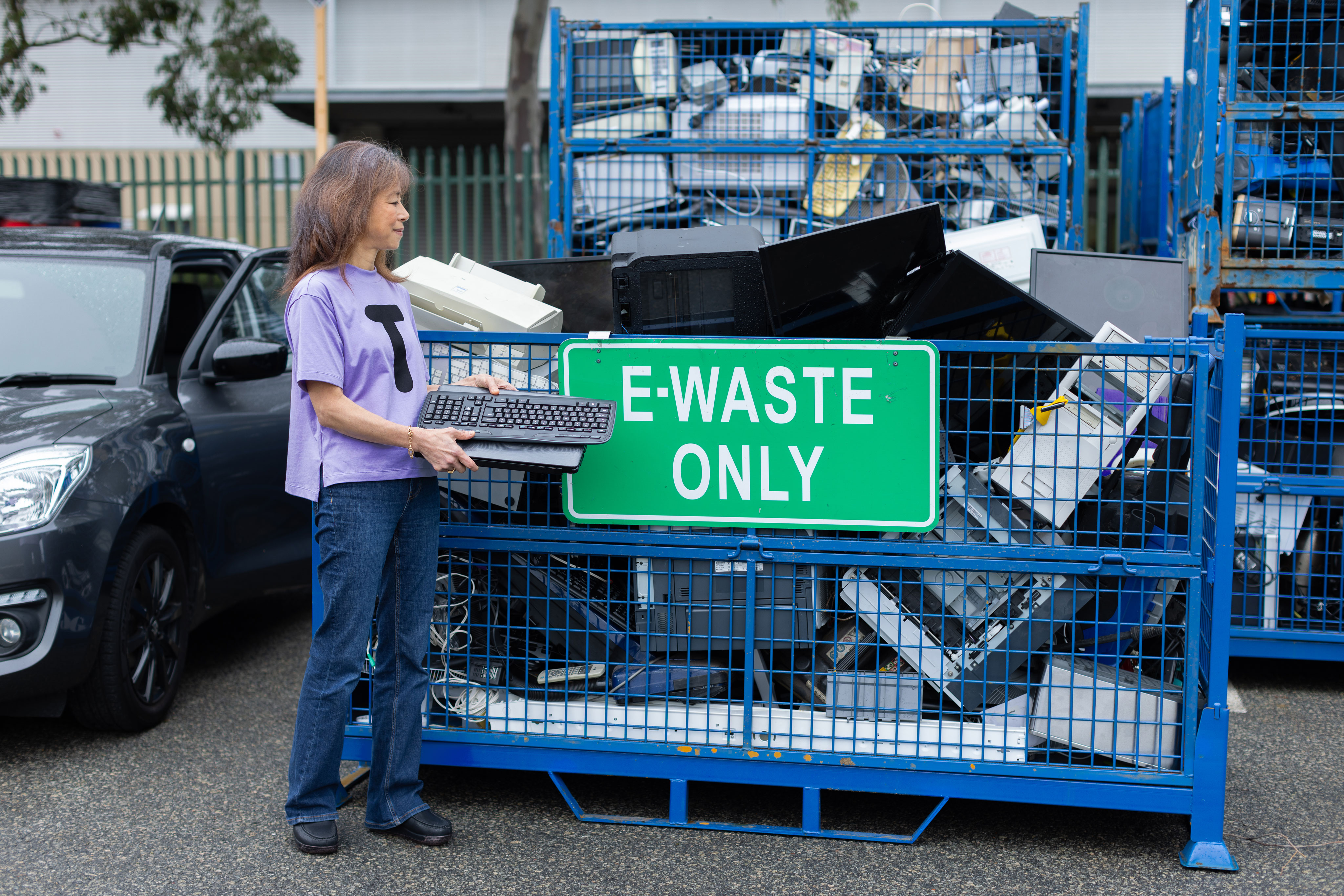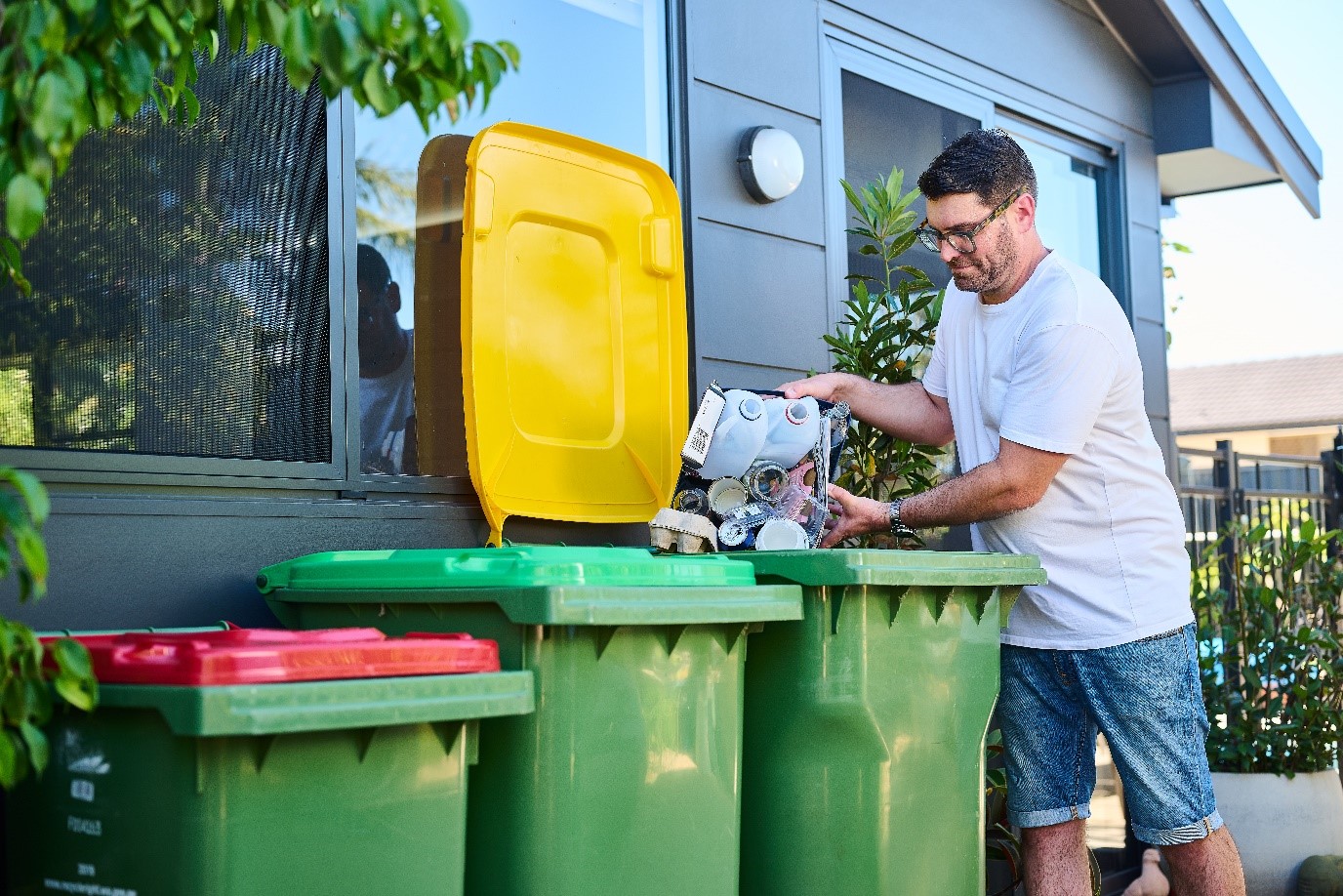Save Money By Recycling & Reducing Your Waste
Posted on: July 10, 2020
Waste not, want not – it’s a saying that is as true today as it was for our grandparents and great grandparents.
Here’s all the financial inspiration you need to make some changes around the house.

Buy less food
Food waste is one of the biggest cost items for Australian households, in fact the average family throws away between $1,000 and $3,500 worth of food every year.
There are simple ways to stop this senseless waste and save you money.
- Plan your meals each week and buy only what you need.
- Regularly check your food stores in your pantry, fridge and freezer and use them.
- Save and use your leftovers – pack them for healthy, waste-free lunches.
- Be creative in the kitchen and use everything from root to leaf in cooking.
- Freeze food if it’s close to its use by date to save it for later.
- Store high waste items such as bread and milk in the freezer and use as needed.
- Rescue food before it’s too late – freeze overripe bananas or blend them into smoothies, make pasta sauce with squishy tomatoes and revive limp veggies by standing them in a glass of water.
Stop paying for water
Selling for up to $3.50 a bottle or more, this is surely king of the money wasters! You don’t need it. Invest in some good quality reusable bottles, fill them with tap water and take them with you and your family wherever you go.
Carry reusable bags
Keep reusable bags in your handbag and car and use them for all of your shopping. Buying multi-use plastic bags every time you shop will add up and you could easily spend $40 or more each year.
Get familiar with your local farmers market
Buying your fruit, vegetables and eggs directly from the source means you’ll probably get a more competitive price than in the supermarkets and less packaging to boot. It'll also be fresher have had required less transportation than the produce you find in a typical supermarket change. It’s a win for your budget, your taste buds and the environment!
Find one close to where you live.
Buy bigger
It sounds counter-intuitive when we’re all being encouraged to buy less, but sometimes bigger can be better for your wallet and your planet. There are cost savings associated with buying items in bulk, and there’s also a saving when it comes to packaging.
Why not try up-sizing your rice, pasta and even toilet paper next time you shop?
Shop second-hand
Your local charity stores and online sales sites like Gumtree may be the key to helping you save for that next family holiday or house renovation as well as reducing your waste generation.
Hunt through your local charity stores or garage sales for clothes, shoes, sporting gear and household items, seek out specialised reuse centres for building materials and online sales sites for furniture and bigger items – including cars! The annual Garage Sale Trail can be a great place to start.
Save and reuse
Before you recycle or dispose of something, consider whether it could be given a second shot at life. Re-dye faded items of clothing, give the outdoor table setting a new coat of paint, or turn unwanted books into crafting supplies.
Maintain for a longer life
Looking after the things you have will ensure they last longer and need replacing less often.
Repair clothing and store it properly and keep household appliances in good working order. Don't forget to book your car in for regular services and wheel alignments too.
BYO coffee cups
Many responsible cafes offer discounts for customers who bring their own coffee cups – if you're seeking out a daily coffee fix this could save you up to $50 each year.
Ditch paper towels and tissues
Leave paper towels and tissues on the shelf and use sponges and hankies instead, saving you approximately $60 off your annual grocery bill.
Beg, borrow or rent
Something you don’t use often? Before you buy it, consider whether you can borrow, rent or even share the purchase with friends or family. This works particularly well for tools, occasional furniture and party decorations.
Resist impulse buying and bargains
Before you buy anything, ask yourself – do I really need it? Resisting the urge to buy something because it's cheap or part of a multi-deal is a sure-fire way to save you money, frustration and reduce clutter.
Did you know?
Cutting the waste produced by your household will not only reduce landfill – it has the potential to save you money too.



